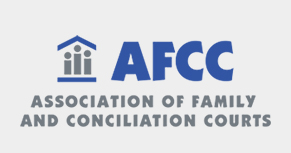Northwest Family Psychology

For parents of students who receive special education (SPED) services through their local school district, annual meetings to discuss your child’s Individualized Education Plan (IEP) can feel monotonous and unimportant. In fact, the accuracy and appropriateness of the IEP is vitally important – it might be the difference between your child’s academic success or failure.
Here are some suggestions to keep in mind throughout the annual IEP process:
Before the IEP Meeting
Review the draft IEP – Your child’s SPED case manager should provide a copy of the draft IEP; make every effort to review the document before the IEP meeting. It is important to compare your child’s proposed goals for the next calendar year to those in the current IEP. Do the proposed goals indicate growth in your child’s academic skills? If not, it is a good opportunity to discuss the reasons for lack of growth and potential alternatives.
Gather documents – If your child has been evaluated or diagnosed over the past year, the IEP meeting is an opportune time to provide the IEP team with documentation. Information may include diagnoses or evaluation reports by pediatricians, psychologists, psychiatrists, speech therapists, or occupational therapists. Not all documentation will be relevant, but it is worth including if your child’s academic performance could be affected.
Speak with your child – As children enter middle school, they are expected to demonstrate increased ownership and responsibility for their education. During IEP meetings, your child is expected to speak in front of the entire IEP team, which can include teachers, psychologists, counselors, administration, and other staff members. In this situation, it is common for even the most talkative of children to suddenly have nothing to say. In order to avoid this frustrating situation, take time to talk to your child a few days before the meeting. You can review the draft IEP together or at least initiate a conversation about issues that will be discussed during the meeting. You might find that they are willing to discuss ideas or concerns that they are uncomfortable initiating during the IEP meeting.

During the IEP Meeting
Teamwork – IEP meetings can be awkward and stressful, especially when there is a history of conflict between parents and school staff. As advocates for your child, parents should strive to keep interactions with staff as positive as possible. If interpersonal conflict becomes the focus of IEP meetings, the support that your child requires might suffer as a result.
Pay attention to IEP accommodations and modifications – The distinction between accommodations and modifications can be confusing. In short, accommodations help students complete the same work as his or her peers; modifications change expectations, such that work is completed on a less demanding level. Thoroughly review the accommodations and modifications included in your child’s IEP. The absence of relevant accommodations and/or modifications can negatively influence the impact of specialized instruction.
After the IEP Meeting
Follow up with staff – It never hurts to send a follow-up email to thank the school staff and re-emphasize the inclusion of important changes to the IEP.
Review final IEP document – When you receive the finalized IEP document, give it one last look over to ensure that it is consistent with what was discussed during the meeting.
Check in with your child – Although your child participated in the IEP meeting, you shouldn’t be surprised if they quickly forget what was discussed. Three to four weeks after the IEP meeting, check in with your child to find out if they (1) remember the most important accommodations and/or modifications, and (2) are utilizing them.
Whether you have questions about the IEP process or suspect that your child needs a neuropsychological examination, Dr. Fowler is available for consultation. Call 360-692-3970 to schedule an appointment.





